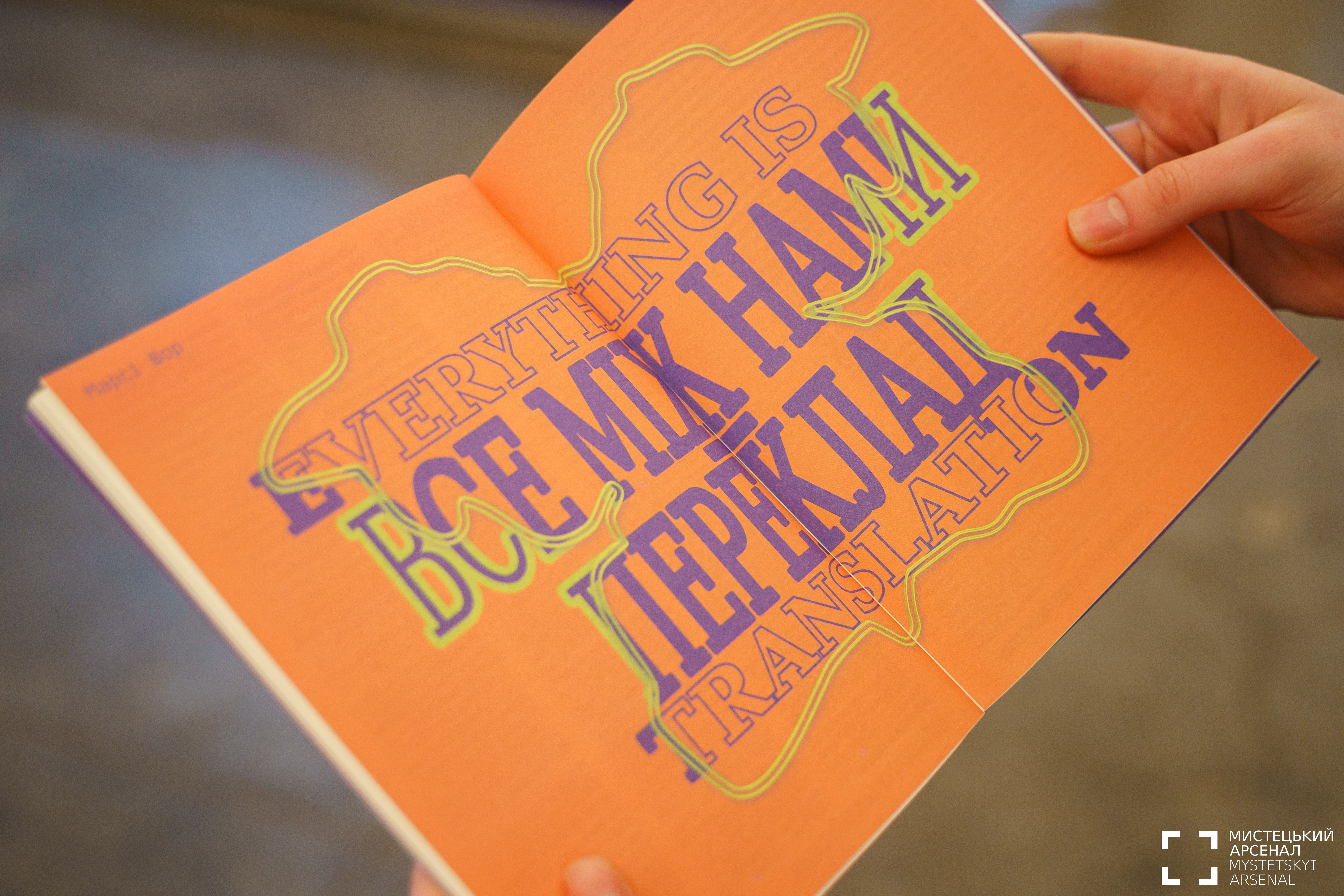During the opening ceremony, the festival organizers, together with the curators, emphasized the significance of such events: We are here because we are a society both in body and in mind, and coming together for such discussions is our answer to the Russian attempt to make us disappear. Everything is Translation united people around culture, thought, and word.
The opening discussion of the focus theme, Everything Is Translation: Intro. Between No Limits / поміж без меж: Both Sides of the Border Face East, began with a conversation between Forostyna and Shore. They noted that untranslatable words emerge because words and languages are coined in realities and contexts that are specific to each society. Since language changes depending on situation, perfect understanding or total transparency is impossible even within one language, especially when expressing emotions.
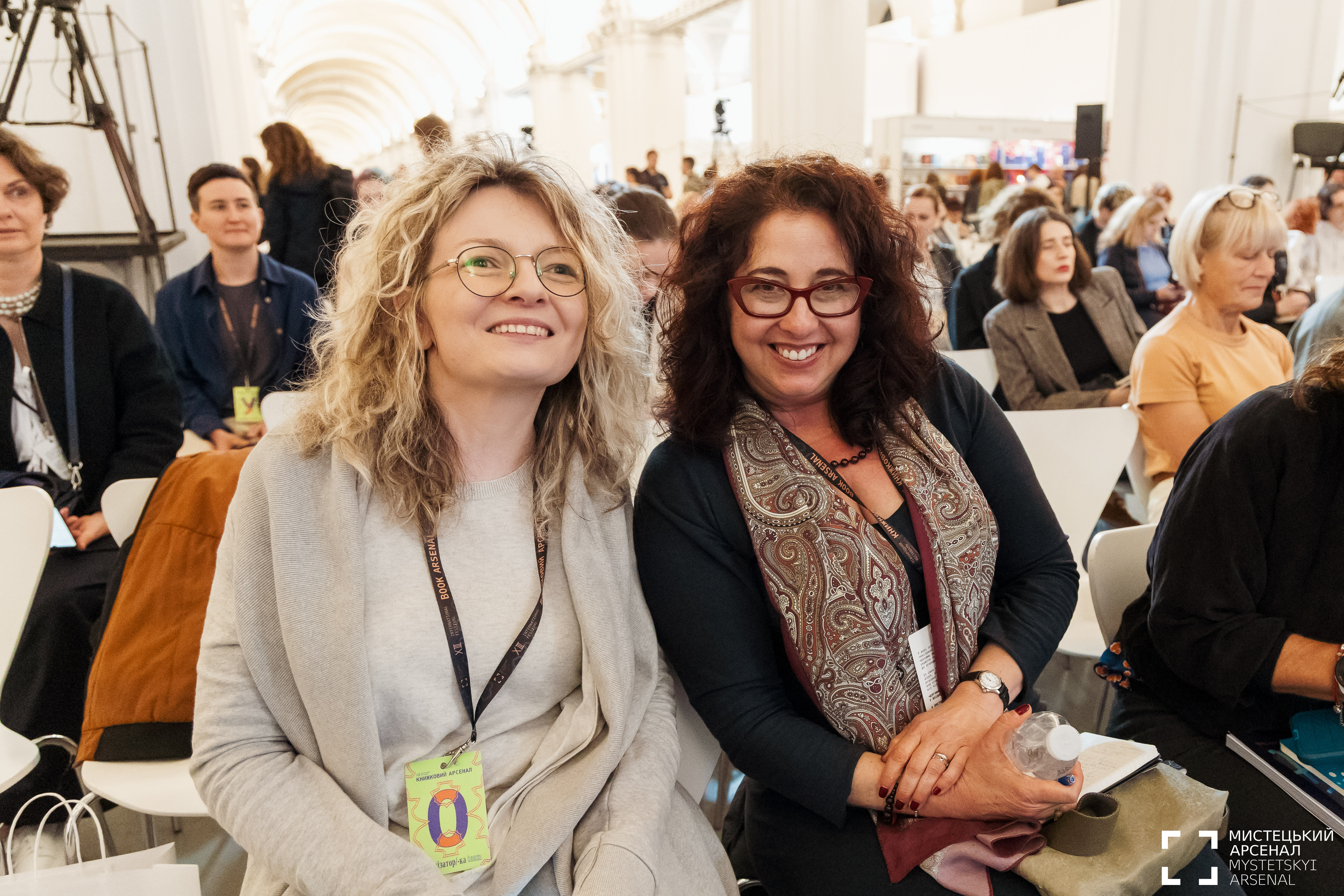
© Art Arsenal Community/Anna Putylina
Shore compared language to the avant-garde: As form creates content, new words and linguistic structures generate new thoughts or, at the very least, create space for them. As language structures our worldview, untranslatability and translation become a key to another way of thinking. Foreign languages are tools for self-reinvention and make possible thoughts we might not have had in our native language. We see a flickering of a meaning on the horizon and need to extend ourselves to move towards it, but can we ever reach it? Translation is a leap of faith that at least some kind of understanding is possible.
The discussion was continued by a group of public intellectuals who are all themselves both writers and translators. Carl Henrik Fredriksson highlighted the relation between translation and culture and the extent to which translation decides what the world knows about certain events or places. Ostap Slyvynsky reflected on how translation can foster a better understanding of reality by rethinking its essence in other languages. He also pointed to two types of translated literature currently in demand in Ukraine: works exploring the experience of other wars and literature that is very far from the war. Iya Kiva supported this statement, emphasizing that non-military literature allows us to remain people whose lives are not limited to war. ariel rosé shared their thoughts about language as a tool of Russian colonization in Ukraine.
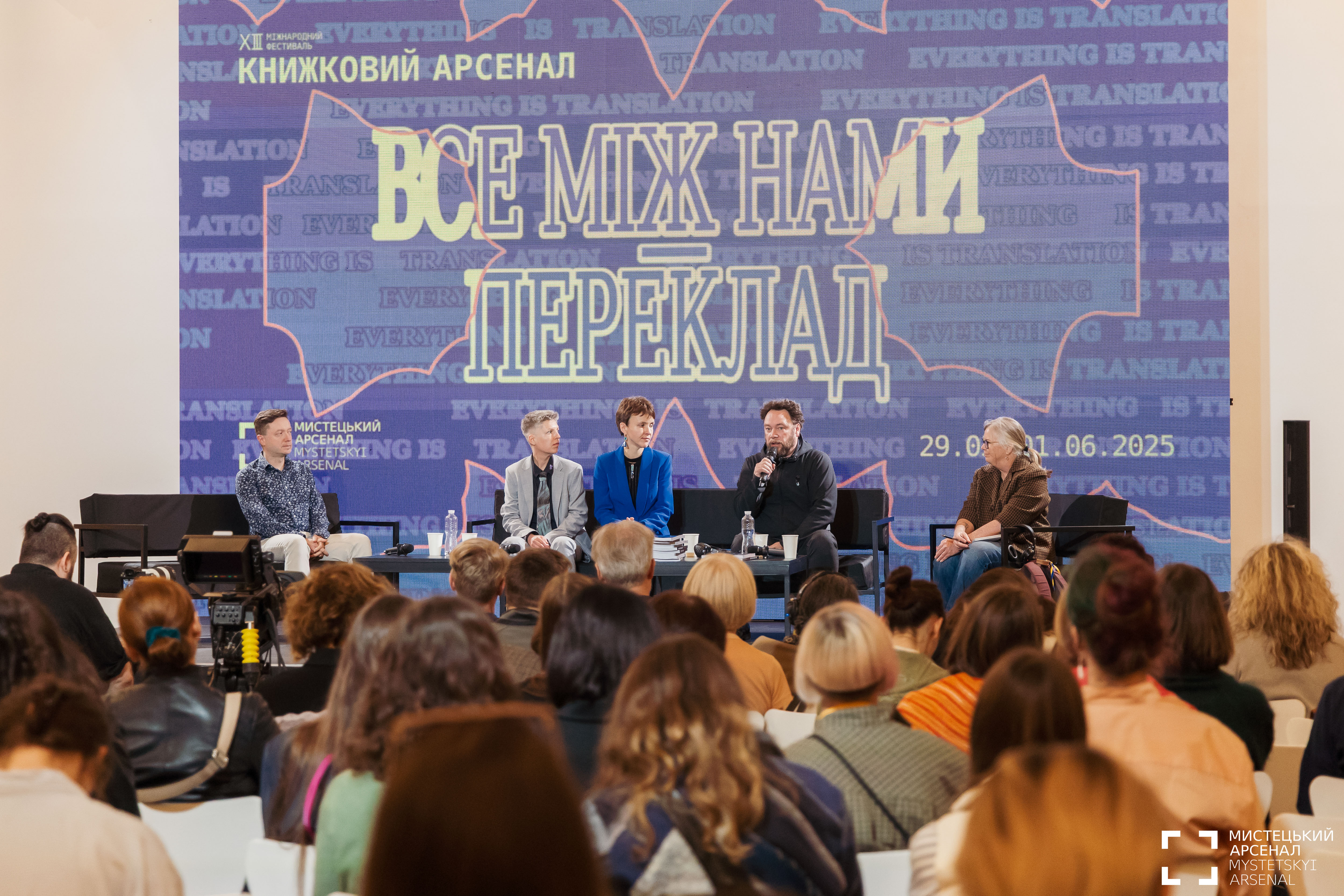
© Art Arsenal Community/Anna Putylina
During the discussion Muttersprache/Mördersprache: Ukrainian-Russian Self-Translation, Ukrainian authors shared their experiences of switching from writing in Russian to writing in Ukrainian. For some authors it is more natural to write a text in Russian and to have the text translated into Ukrainian later. Andrei Kurkov, who writes his books in Ukrainian, Russian and English, argued that everything that is written in Ukraine about Ukraine in all the languages that are spoken in Ukraine should be considered Ukrainian literature. Olena Stiazhkina shared her experience of working on her latest novel Cecil the Lion Had to Die, which is written in Russian and Ukrainian. Gleb Gusev reflected on the language choice in his new book. Since the novel is set in Mariupol, writing in Russian or a mixed dialect like surzhyk felt more authentic. Nevertheless, he decided to have the book translated into Ukrainian, taking into consideration the target audience of the novel. Since the text was translated by a different person, Gusev could look at his writing from the perspective of an editor, which allowed him to reevaluate his work in a new light.
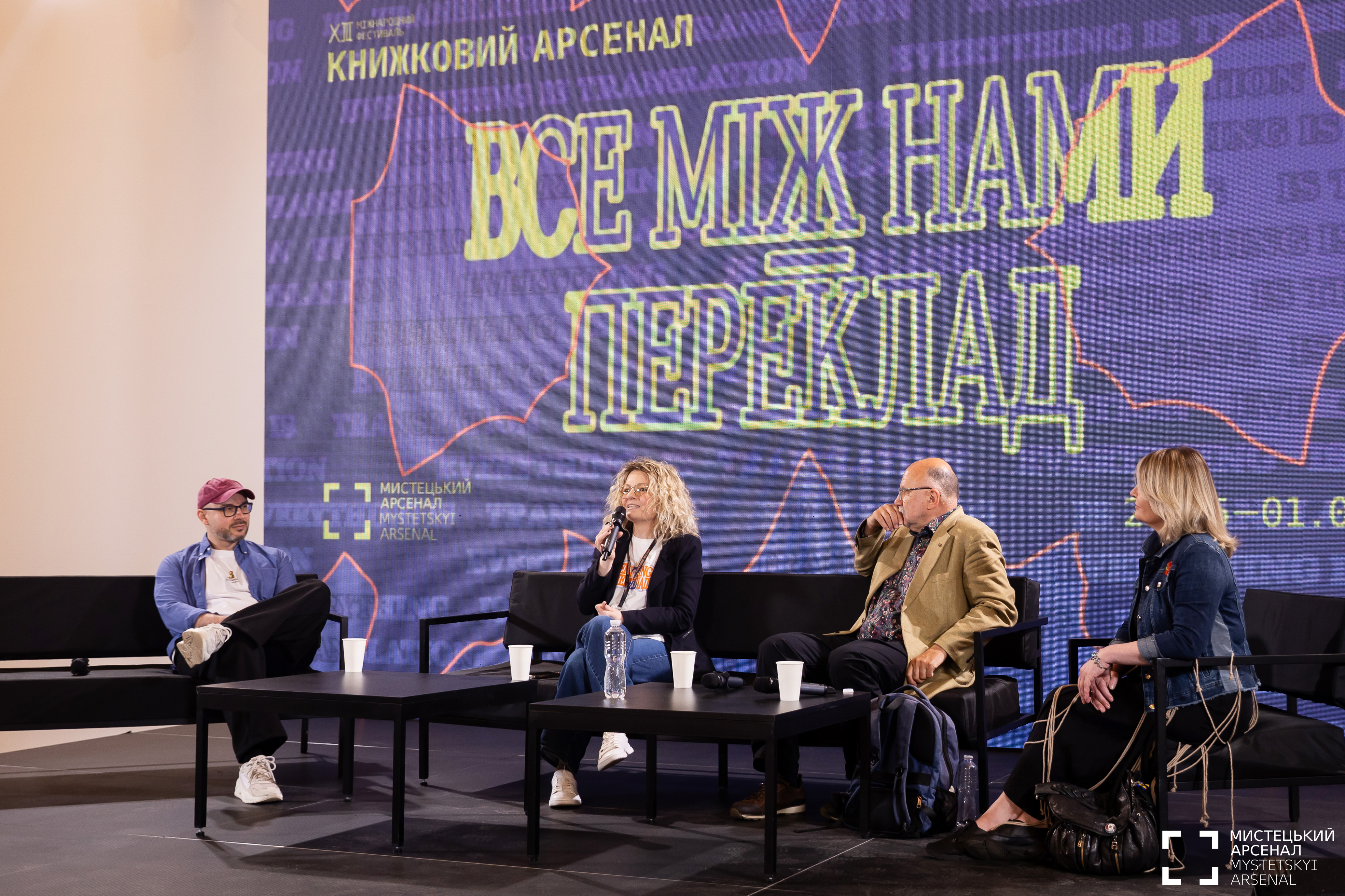
© Art Arsenal Community/Yevhenii Zavhorodnii
The authors discussed the phenomenon created by this self-translation: since books written in Russian are usually released only in their Ukrainian translation, the original text in Russian does not become a part of the Ukrainian literary world. Moreover, it means that translations into other languages are made from the Ukrainian translation and not the original text. Participants agreed that the question of the Russian language in contemporary Ukrainian literature is an issue of national security, especially in the context of the Russo-Ukrainian War.
Philosopher Volodymyr Yermolenko and Marci Shore discussed the philosophy of Hannah Arendt in a discussion titled Taking Evil out of Scare Quotes: Hannah Arendt and the Problem of Evil in a Postmodern World. They explored the concept of evil on the example of Adolf Eichmann and concluded that the greatest crime and source of evil is that a person does not think critically but simply executes given orders. The crisis of subjectivity and responsibility was another topic in this conversation, along with human irreplaceability. To combat evil, we must engage actively as citizens, recognize critical thinking as both a form of participation and responsibility, and try to distinguish truth from lies.
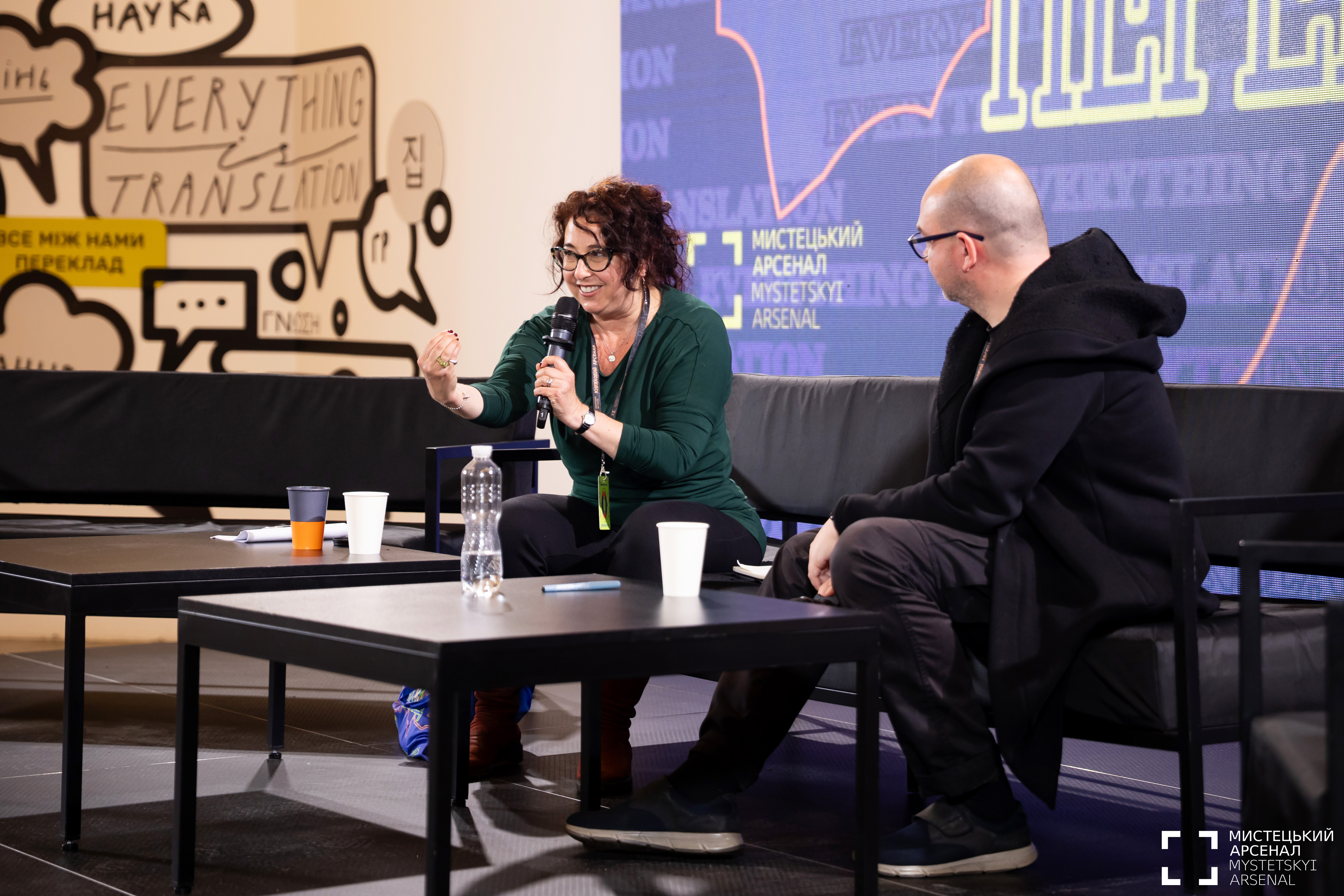
© Art Arsenal Community/Sofiia Yermakova
The next discussion titled Translating Experience: Is a Language Enough?, moderated by writer and volunteer Ivanna Skyba-Yakubova, focused on the uniqueness of each individual experience of war and the inner translation between civil and military identities. Oksana Stomina, a writer and human rights activist, shared her thoughts on the impossibility of conveying the experience of the siege of Mariupol by linguistic means, partly because people who witnessed it cannot explain these events even to themselves. Natalka Marynchak, a writer, performer, and presenter on Kharkiv's Nakypilo radio station, emphasized the importance of mutual respect if experiences are not comparable. Yevheny Volodchenko, a musician and soldier, reflected on how he accepts his dual identities as a member of the military and as a civilian. Olena Apchel, a performer and cultural critic, mentioned post-traumatic growth as an essential part of modern community.
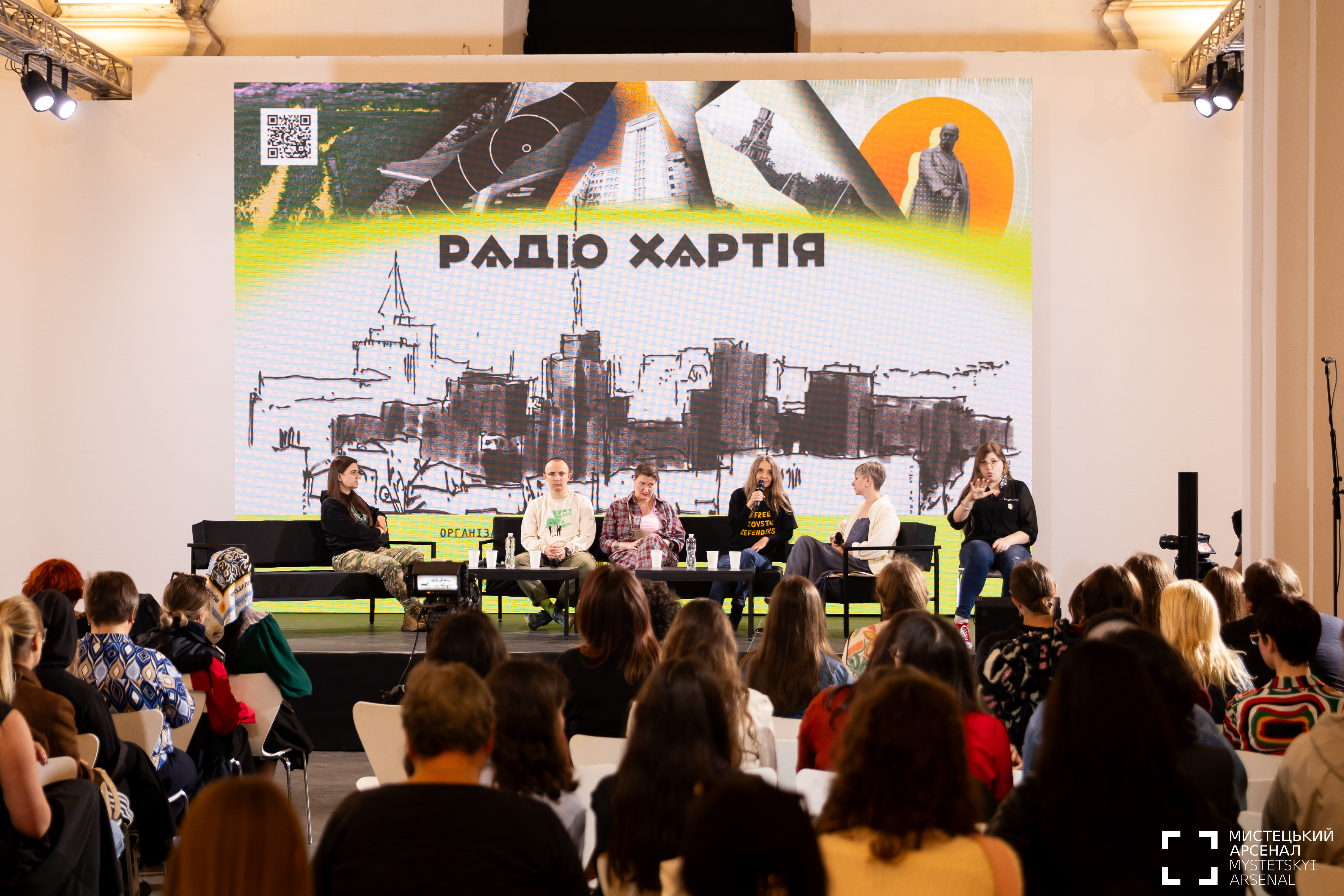
© Art Arsenal Community/Yevhenii Zavhorodnii
The participants discussed the importance of creating a safe space for people to share their stories and experiences. As a community, we must listen to each other and be supportive. Even when going through a common experience, everyone relates to it in their own way. To be able to translate our experience into words, we must first accept it.
The last discussion Untranslatable Words, Our Keys to Secret Doors began with philosopher Krzysztof Czyżewski’s thoughts on the necessity of understanding a word’s time, culture and meaning in order to translate it. He illustrated this with the word перемога, which is different in meaning from English victory or Polish zwycięstwo. The word conveys the idea of overcoming—doing the impossible, overcoming the limits of oneself and being better. There is no пере-мога in the dimension of possible: only those who go beyond their own abilities can win.
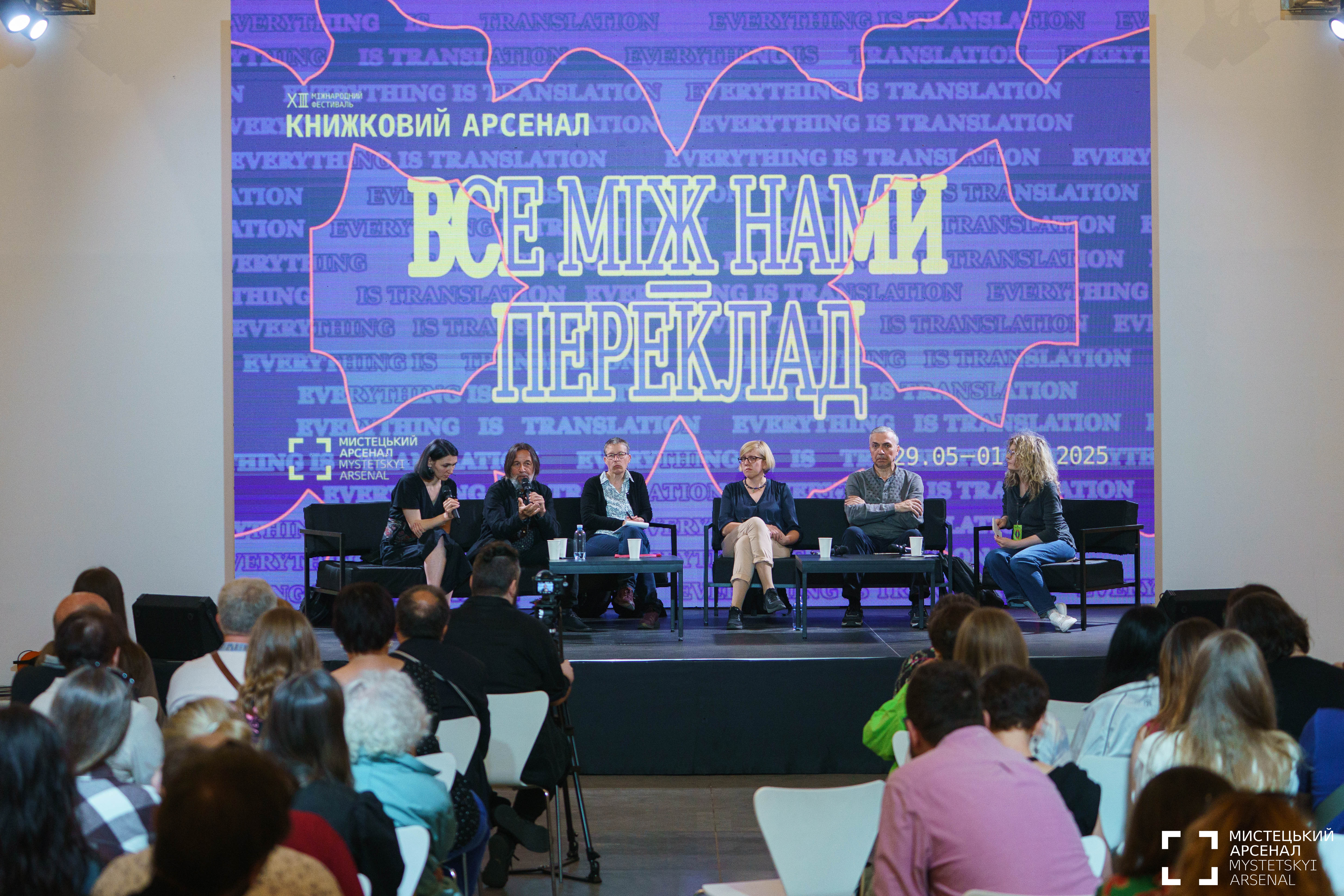
© Art Arsenal Community/Roman Shalamov
Translator Claudia Dathe pointed to the examples of свобода, доля and воля, the connotations of which cannot be fully conveyed by their German counterparts Ehre, Freiheit and Schicksal. Roksolana Sviato, a writer, editor, and translator, explained similar difficulties when translating in the opposite direction: the German words Reproduzierbarkeit and Erfahrung are not easily translated into Ukrainian. She emphasized that each word has a whole tradition behind it which cannot be substituted by a foreign equivalent. Philosopher and publisher Constantin Sigov presented the Ukrainian edition of the fifth issue of the French Vocabulaire européen des philosophies. Dictionnaire des intraduisibles, a project of Barbara Cassin who understood untranslatabilities as a challenge, not as a problem. It is rather symbolic that a Ukrainian publishing house was the first to sign the contract to produce a foreign-language edition of this book, since it demonstrates the readiness of Ukrainians to take on an impossible challenge.
The participants discussed the necessity to work with untranslatable words creatively and playfully, rather that literally and automatically. Sviato insisted that our experience and emotions define our perception of content, and it is barely possible to convey experience simply per words. Czyżewski emphasized translation’s ability to ameliorate the loneliness that arises from untranslatability.
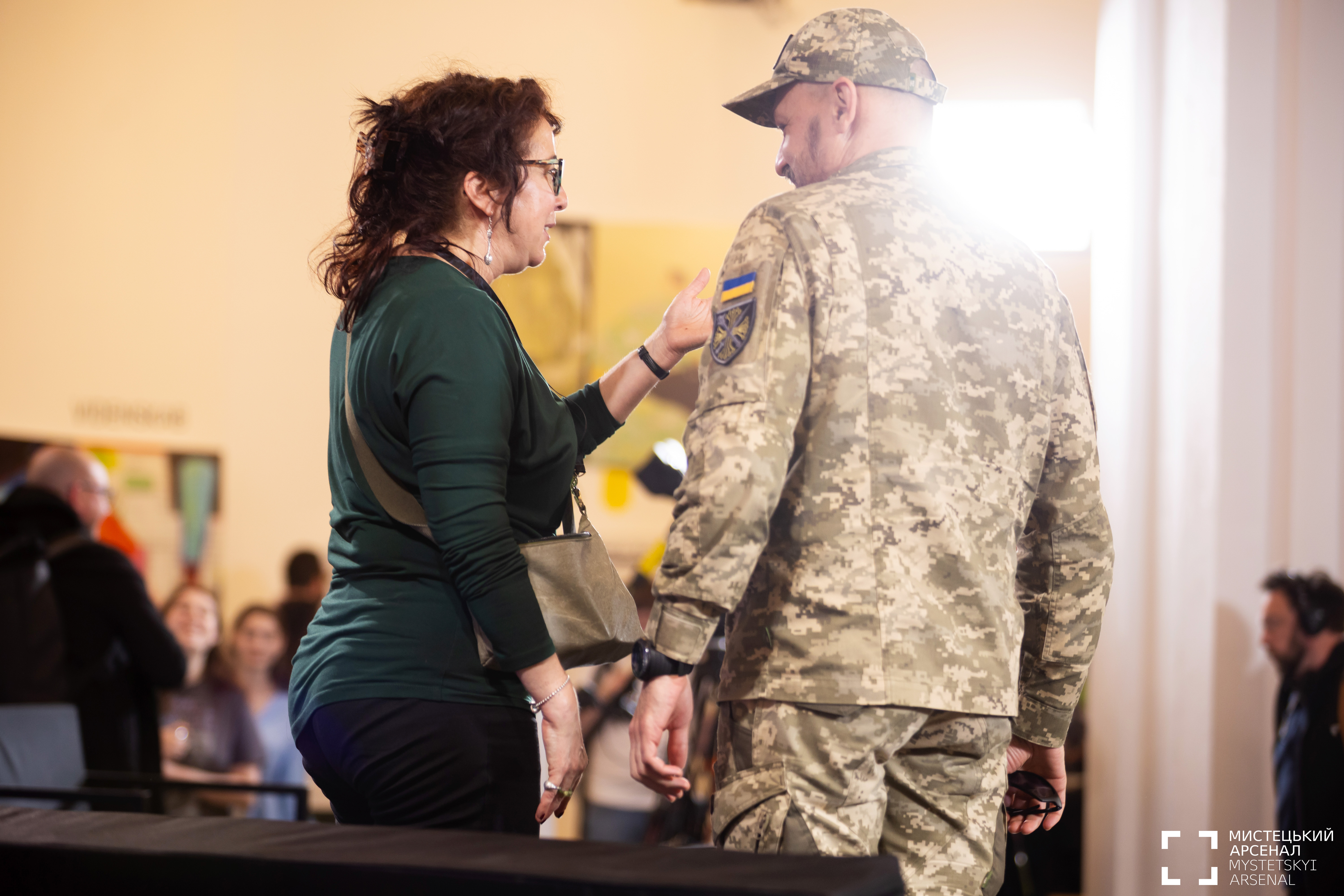
© Art Arsenal Community/Sofiia Yermakova
The XIII International Book Arsenal Festival offered a space to reflect on topics such as mutual understanding, translation from one language to another and within one language, and the interpretation of experiences that are impossible to comprehend fully, especially traumatic experiences. To learn more about the festival, you can explore the reflections from the last year's edition Life on the Edge.

